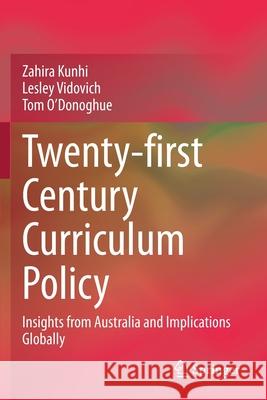Twenty-First Century Curriculum Policy: Insights from Australia and Implications Globally » książka
topmenu
Twenty-First Century Curriculum Policy: Insights from Australia and Implications Globally
ISBN-13: 9783030614577 / Angielski / Miękka / 2022 / 192 str.
Twenty-First Century Curriculum Policy: Insights from Australia and Implications Globally
ISBN-13: 9783030614577 / Angielski / Miękka / 2022 / 192 str.
cena 483,04
(netto: 460,04 VAT: 5%)
Najniższa cena z 30 dni: 462,63
(netto: 460,04 VAT: 5%)
Najniższa cena z 30 dni: 462,63
Termin realizacji zamówienia:
ok. 22 dni roboczych.
ok. 22 dni roboczych.
Darmowa dostawa!
Kategorie:
Kategorie BISAC:
Wydawca:
Springer
Język:
Angielski
ISBN-13:
9783030614577
Rok wydania:
2022
Ilość stron:
192
Waga:
0.27 kg
Wymiary:
23.39 x 15.6 x 1.04
Oprawa:
Miękka
Wolumenów:
01
Dodatkowe informacje:
Wydanie ilustrowane











